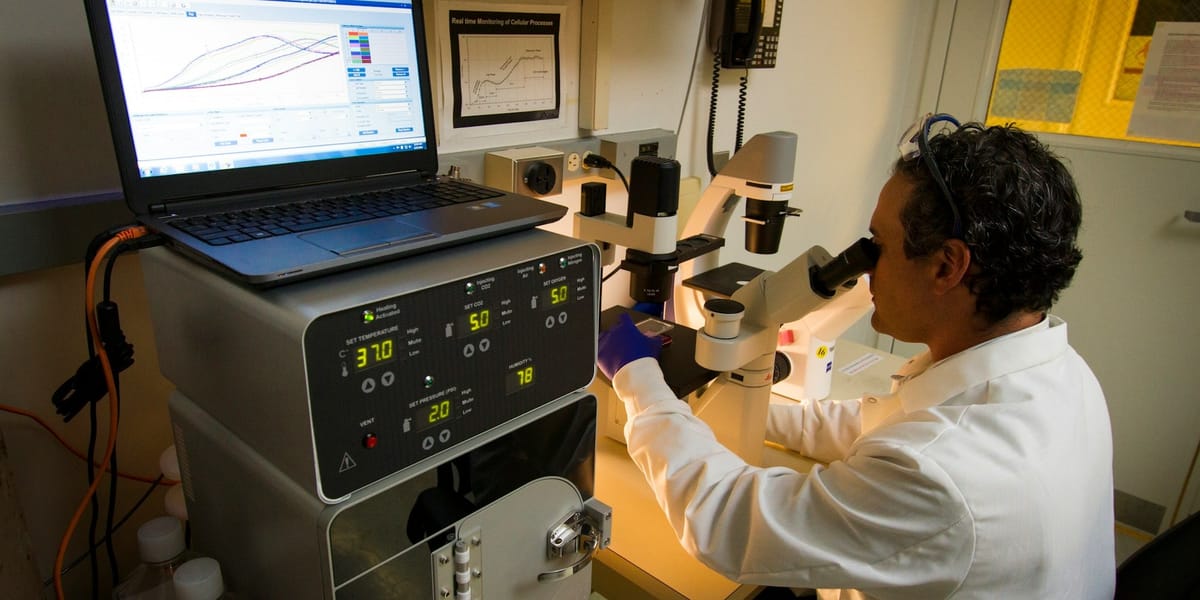The Next Big Thing in Technology: Gene Therapy and Longevity

As humanity continues to push the boundaries of science and technology, the quest for longevity and even immortality remains a tantalizing goal. Among the myriad of technological advancements, gene therapy stands out as a promising frontier that could significantly extend human lifespan and improve the quality of life. This article explores how gene therapy might be the next big thing in technology to help humans live longer, healthier lives.
Understanding Gene Therapy
Gene therapy is a revolutionary technique that involves altering the genes inside a person's cells to treat or prevent disease. This method allows scientists to correct defective genes responsible for disease development or to introduce new genes to help the body fight disease. The potential of gene therapy extends beyond treating genetic disorders; it could play a crucial role in combating age-related diseases and extending human lifespan.
The Role of Gene Therapy in Longevity
Recent research has highlighted the potential of gene therapy in extending healthy human lifespan. By targeting specific genes associated with aging and age-related diseases, gene therapy can modify the biological pathways that contribute to the aging process. For instance, certain genes have been identified that, when altered, can mimic the effects of calorie restriction—a known method for extending lifespan in various organisms[5].
Gene therapy could potentially address the root causes of aging by repairing or replacing damaged DNA, reducing cellular senescence, and enhancing the body's natural repair mechanisms. This approach not only aims to extend lifespan but also to improve the quality of life by reducing the incidence of age-related diseases such as Alzheimer's, cardiovascular diseases, and cancer[3].
Advances in Gene Therapy
The field of gene therapy has seen significant advancements in recent years. Techniques such as CRISPR-Cas9 have revolutionized the ability to edit genes with precision, allowing for targeted interventions that were previously unimaginable. These advancements have paved the way for clinical trials and research studies aimed at understanding and manipulating the genetic factors that influence aging and longevity[7].
Moreover, the integration of artificial intelligence (AI) and bioinformatics in gene therapy research has accelerated the discovery of new therapeutic targets. AI can analyze vast amounts of genetic data to identify patterns and interactions that may not be apparent to human researchers, thereby uncovering new pathways for intervention[8].
Ethical and Practical Considerations
While the potential of gene therapy in extending human lifespan is immense, it also raises several ethical and practical considerations. The idea of significantly extending human life or achieving immortality poses questions about resource allocation, population growth, and the societal implications of a longer-lived population. Additionally, the long-term effects of gene editing are still not fully understood, and there is a need for rigorous testing and ethical guidelines to ensure the safety and efficacy of these interventions.
The Future of Gene Therapy and Longevity
As research in gene therapy continues to advance, it holds the promise of transforming our understanding of aging and longevity. The potential to not only extend life but to enhance the quality of life by reducing the burden of age-related diseases is a compelling prospect. However, realizing this potential will require continued investment in research, careful ethical consideration, and collaboration across scientific disciplines.
In conclusion, gene therapy represents a groundbreaking approach that could redefine the human lifespan. As we stand on the brink of this new era in biotechnology, the possibility of living longer, healthier lives is becoming increasingly tangible. The journey to achieving this vision will undoubtedly be complex, but the potential rewards make it a pursuit worth undertaking.
Citations:
[1] Recent advancements in multimodal human–robot interaction https://www.ncbi.nlm.nih.gov/pmc/articles/PMC10210148/
[2] TARGET ONCOGENIC RECEPTORS IN TUMOURS, FROM ITS INITIAL CLINICAL BREAKTHROUGHS TO CURRENT CLINICAL STANDARD THERAPY https://www.semanticscholar.org/paper/f728affc492bbfa13524738922ab21fea0396da6
[3] Extending Healthy Human Lifespan Using Gene Therapy https://www.semanticscholar.org/paper/5306de93c638f2a8a82ba159c5c0b6b416983599
[4] Determining the main criteria for selecting appropriate methods for repair and maintenance of commercial real estate in Iran https://www.semanticscholar.org/paper/87202aacf412eb57fc033751557559f058107738
[5] Identifying the genes and genetic interrelationships underlying the impact of calorie restriction on maximum lifespan: an artificial intelligence-based approach. https://pubmed.ncbi.nlm.nih.gov/18729806/
[6] Living to 100 and Beyond : Search for Predictors of Exceptional Human Longevity https://www.semanticscholar.org/paper/174e93b40d7c5ae99c7d3b61ad6fd4da20c445e4
[7] Editorial: Expert opinions in integrative bioinformatics: 2022 https://www.ncbi.nlm.nih.gov/pmc/articles/PMC10235704/
[8] A Comparative Analysis of Expert Opinions on Artificial Intelligence: Evolution, Applications, and Its Future https://www.semanticscholar.org/paper/6d10dd7dc17f56cb12185b1569ad55c67c6372db



